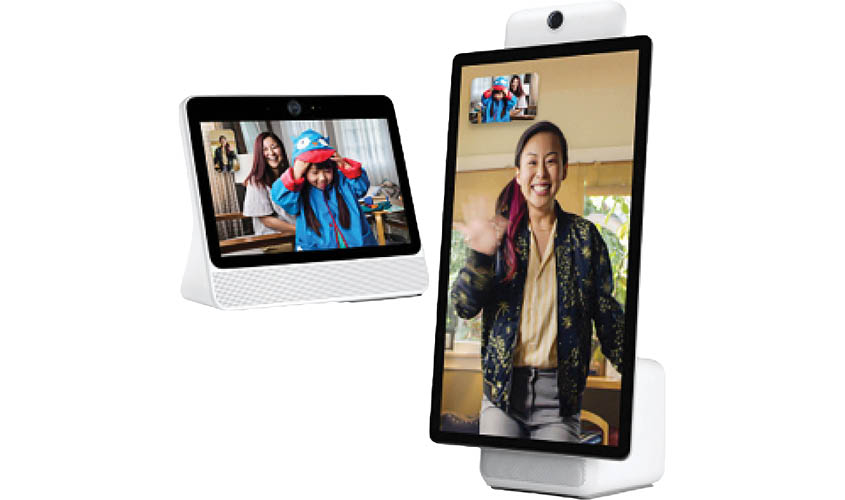This has not been a good year for Facebook. The tech giant has been embroiled in a well-publicised controversy centred on the issues of user privacy and data leaks. All this negative press forms the backdrop to the recent launch of Portal and Portal+, Facebook’s video-calling enabled smart home devices.
It sports a 10-inch, 1280×800 display, with a smart camera and smart sound technology. Portal’s camera is particularly hi-tech: during group video chats, it can shift focus from person to person, depending on who is speaking. The smart sound is designed to keep the background noise to its minimum and enhance the voice inputs.
The difference between the two variants, Portal and Portal+, is that of the size. Portal+ has a 15-inch, 1920×1080 pivoting display, which supports both landscape and portrait modes. This device uses Facebook’s Messenger app to link up the chat sessions. Users can connect with up to seven people at a time, through one group call.
Amazon’s AI software, Alexa, has been integrated with the Portal devices, which you can activate with the command, “Hey Portal”. You can get news notifications, check weather and operate your smart home devices with the Portal as your control centre. Also, in the true Facebook spirit, the Portal has a special birthday reminder feature, so that you never forget to wish your friends and family.
When not being used for video calling, the Portal devices can be switched to the “Superframe” mode and essentially turned into high-resolution digital photo frames. You can also add a range of filters to your photographs and video feeds, to add to the fun.
As a nod to the growing awareness within the tech space regarding user privacy, Facebook has put certain security features in its Portal devices that are worth mentioning. The smart cameras on Portal and Portal+ come with covers with which users can block the lens. The microphones on these devices can also be turned off as and when required.
Clearing the air regarding all the privacy issues, an official Facebook statement said, “Facebook doesn’t listen to, view, or keep the contents of your Portal video calls. Your Portal conversations stay between you and the people you’re calling. In addition, video calls on Portal are encrypted, so your calls are always secure. For added security, Smart Camera and Smart Sound use AI technology that runs locally on Portal, not on Facebook servers. Portal’s camera doesn’t use facial recognition and doesn’t identify who you are. You can delete your Portal’s voice history in your Facebook Activity Log at any time.”
The “Story Time” feature is also among the highlights of the Portal series. With this feature, users can customise their voices and even tailor the visuals, to suit the story being narrated. Telling stories to children will never be the same.
The Portal devices are being compared to Amazon’s Echo Show, which was launched last year but failed to make much of an impact on the market. The problem with such gadgets is that their functionality is very limited, even as the price points take them way out of reach of the average consumer. Anyone who needs a touch-screen device would rather invest in a decent tablet than experiment with Portal-like products.
Yet it’s never safe to make predictions in the world of technology. It may well be that Portal and Portal+ become the best-selling gadgets of all time. Or conversely, they might fail to create the kind of commercial returns Facebook is expecting from them. All said, they mark an important milestone in Facebook’s history, inaugurating the social-media giant’s journey into the world of consumer electronics.

